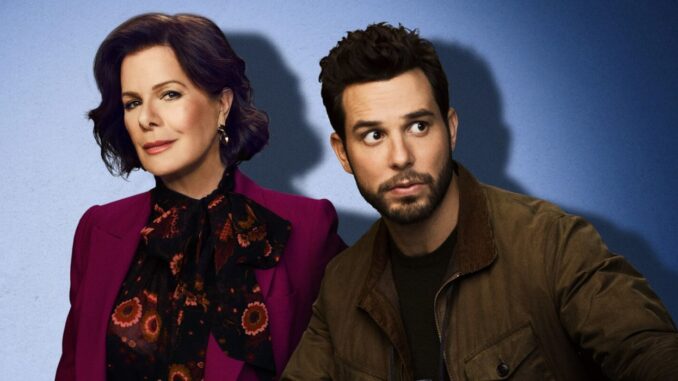
The digital tremor began subtly, a ripple across social media feeds, before erupting into a full-blown earthquake. "So Help Me Todd cancelled." The words, stark and unceremonious, landed like a cold slap in the face for a devoted fanbase. For those who had come to cherish the quirky charm, the sparkling dialogue, and the endearing, often exasperated, dynamic between Marcia Gay Harden's meticulous Margaret and Skylar Astin's charmingly chaotic Todd, the news was more than just the end of a TV show; it was the sudden, inexplicable void where a weekly dose of comfort and laughter used to be.
The initial reaction was a cacophony of disbelief. Twitter, Instagram, and Reddit became virtual town squares of raw grief and indignation. Screenshots of the cancellation announcement were overlaid with furious emojis; memes expressing heartbreak proliferated. "NOOOOOOO!" screamed one post, echoing the sentiment of thousands. "This can't be real! It was just getting good!" cried another, articulating the peculiar injustice of a show, beloved by its audience, being unceremoniously cut down in its prime. Fans recounted their favorite moments, debated plot points, and shared personal anecdotes of how the show had brightened their week, provided escapism, or even sparked joy during difficult times. The hashtag #SaveSoHelpMeTodd quickly trended, a digital banner unfurled in a collective wail.
But the lamentations soon morphed into something more potent: defiance. Amidst the shared sorrow, a new energy began to hum – a resolve born of collective love. It started with a whisper, then grew into a roar: a petition. Someone, somewhere, ignited the spark, creating an online petition for renewal. It was a simple, tangible act, yet its symbolic weight was immense. It wasn't just a click; it was a vote, a declaration, a refusal to accept the verdict.
And then, the floodgates opened. The petition link was shared, retweeted, cross-posted, and messaged with a fervent urgency. Every signature added a drop to a rising tide of hope. Watching the numbers climb became a ritual: 10,000, 25,000, 50,000, then hurtling past 75,000, each increment a fresh surge of adrenaline. It wasn't merely a statistic; it was the aggregated passion of individuals, each click representing a person who felt personally invested in the fate of Todd, Margaret, and the law firm of Lyle & Associates. For a moment, the passive act of watching television transformed into an active, almost political, campaign.
This collective action fostered an even deeper sense of community. Fans, who might previously have only interacted in passing online, now rallied together. They strategized, sharing tips on how to reach networks, tweeting directly at executives, and even coordinating watch parties for reruns, attempting to boost streaming numbers as a final, desperate plea. Fan art blossomed, depicting scenes of their beloved characters demanding justice. Inside jokes from the show became rallying cries. The online spaces dedicated to So Help Me Todd weren't just mourning sites; they were command centers, vibrating with a shared purpose, a palpable sense of solidarity.
What this burgeoning petition truly illustrates is the profound, often underestimated, bond between a television show and its audience. It's more than just entertainment; it's a connection, a comfort, a cultural touchstone. When a show like So Help Me Todd is canceled, it feels like a personal slight, a beloved friend suddenly vanishing without a proper goodbye. The petition becomes a tangible manifestation of that pain, but more importantly, of that love. It's a defiant roar that says, "Our voices matter. Our investment counts. This isn't just a business decision; it's a part of our lives."
Whether the petition ultimately sways the powers that be remains to be seen. The odds, in the cutthroat world of television, are often stacked against such grassroots movements. But regardless of the outcome, the story of So Help Me Todd's cancellation and the subsequent outpouring of fan-fueled activism stands as a powerful testament. It illustrates the enduring power of storytelling to forge community, the surprising depths of emotional attachment to fictional characters, and the unwavering resolve of a dedicated fanbase to fight for what they believe in, even if it's just to save a beloved show about a charmingly chaotic private investigator and his formidable lawyer mother. It's a chorus of hope, amplified by thousands of clicks, singing a defiant song for one last season.
